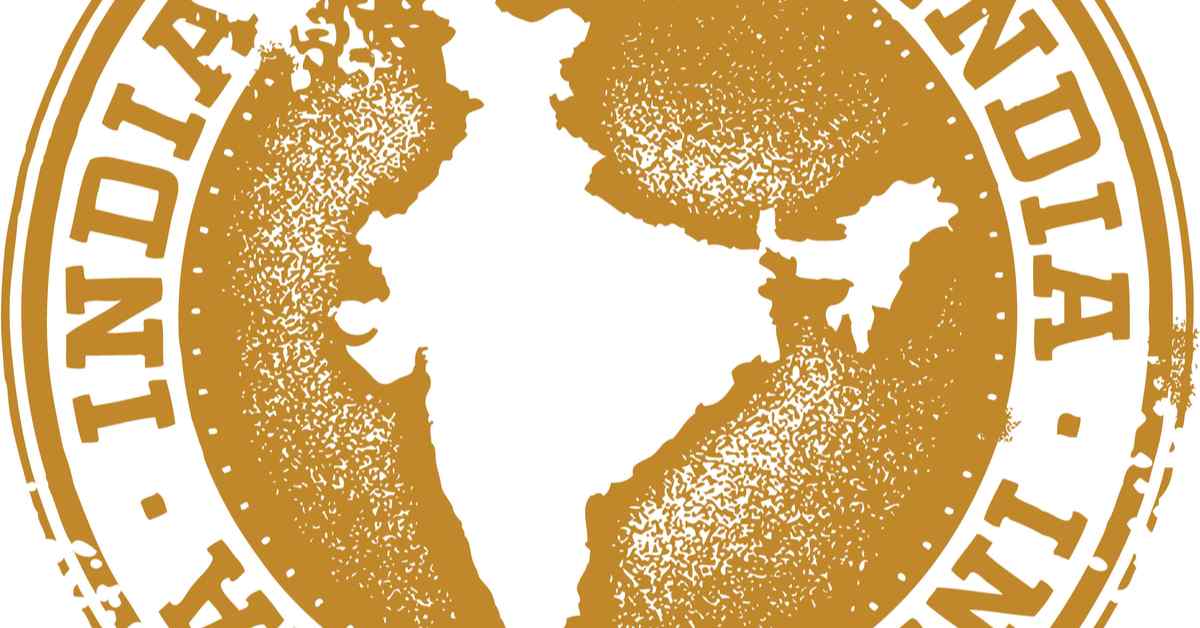Table of Contents
Quality Service Guarantee Or Painting Free

Get a rental agreement with doorstep delivery

Find the BEST deals and get unbelievable DISCOUNTS directly from builders!

5-Star rated painters, premium paints and services at the BEST PRICES!
Loved what you read? Share it with others!

Difference Between an Equitable Mortgage and a Registered Mortgage in India
Table of Contents
Introduction to Mortgage Options in India
Choosing your home loan adventure – An overview options in India
Mortgage - the word that makes many of us break into a cold sweat. Buying a home is important, and the mortgage process can seem overwhelming. There are so many types! What is the difference between equitable and registered mortgage after all? Fear not, dear reader! This blog on the difference between an equitable mortgage and registered mortgage will guide you through the maze of options and help you make informed decisions.
Why pick the right mortgage option? Your future self will thank you
The mortgage you choose can impact your financial well-being for years to come. It's crucial to understand the different options available to you and make the best choice for your individual circumstances. In this blog, we'll be exploring the difference between an equitable mortgage and registered mortgage options in India. We'll also be looking at the legal and financial implications of each option and analysing current real estate market trends and their impact on mortgage choices. By the end of this blog, you'll be a mortgage master, ready to take on the real estate world with confidence!
READ ALSO: How Choosing the Right Mortgage Can Help You Plan Your Future with Ease
Quality Service Guarantee Or Painting Free

Get a rental agreement with doorstep delivery

Find the BEST deals and get unbelievable DISCOUNTS directly from builders!

5-Star rated painters, premium paints and services at the BEST PRICES!
What is Equitable Mortgage?
Defining equitable mortgage - What does it mean?
Before understanding the difference between registered and equitable mortgage, it is important to understand first what each is. Equitable mortgage, for instance, refers to a type of mortgage where the borrower provides the lender with a security interest in their property. In the event of a default, the lender can take possession of the property to recover the loan amount.
What is the legal framework surrounding equitable mortgages?
In India, equitable mortgages are governed by the Transfer of Property Act, of 1882, and the Registration Act, of 1908. According to the law, an equitable mortgage must be in writing and signed by the borrower. It must also be registered with the local authorities to be legally binding.
What are the advantages and disadvantages of choosing equitable mortgage?
One of the biggest advantages of an equitable mortgage is that it often has a lower interest rate compared to a registered mortgage. However, it can be more difficult and time-consuming to execute and enforce in the event of a default.
READ ALSO: Everything You Must Know About Earnest Money Deposit – Advantages and Features Explained
What is a Registered Mortgage?
How does Registered Mortgage work?
A registered mortgage is a type of mortgage where the borrower provides the lender with a formal document, known as a mortgage deed, as security for the loan. This document is registered with the local authorities and is legally binding. In the event of a default, the lender can take possession of the property to recover the loan amount.
What is the legal framework surrounding registered mortgages?
In India, the legal framework surrounding registered mortgages in India is established by two main acts: the Registration Act, 1908 and the Indian Stamp Act, 1899.
These acts outline the procedures for creating, executing and registering a mortgage agreement between the borrower and the lender. In order to create a valid and legally binding mortgage, the agreement must be in writing, signed by both parties, and registered with the local authorities. The Indian Stamp Act requires the mortgage agreement to be stamped to verify the payment of the appropriate stamp duty, which is based on the loan amount and the state where the property is located. Failure to comply with the provisions of these acts can result in the mortgage being declared invalid.
In addition to these acts, the Reserve Bank of India (RBI) has also issued guidelines for banks and other lending institutions in India to follow while granting loans secured by mortgages. These guidelines aim to ensure that the mortgage process is transparent and fair to both the borrower and the lender. The guidelines also specify the maximum loan-to-value ratio and the maximum repayment period for mortgages in India.
Overall, the legal framework surrounding registered mortgages in India is designed to protect the interests of both borrowers and lenders, and ensure the validity and enforceability of the mortgage agreement. It provides clarity and certainty for parties involved in the mortgage process, helping to reduce the risk of disputes and legal challenges.
READ ALSO: Getting a Home Loan— the First step to Building Your Dream Home
Equity mortgage vs Registered mortgage: What are the advantages and disadvantages of choosing a registered mortgage?
Choosing a registered mortgage can have both advantages and disadvantages, depending on your personal financial situation and needs. Let's dive into some of the key pros and cons of this type of mortgage.
Advantages:
- Easier to enforce: In the event that a borrower defaults on their mortgage payments, a registered mortgage is much easier to enforce compared to an equitable mortgage. This means that the lender can more easily take legal action to recover their funds.
- Legal recognition: A registered mortgage is a legally recognized form of mortgage in India and has a clear legal framework surrounding it. This provides greater certainty and security for both the borrower and the lender.
Disadvantages:
- Higher interest rates: Registered mortgages often come with higher interest rates compared to equitable mortgages. This means that over the life of the loan, borrowers may end up paying more in interest costs.
- Increased costs: In addition to higher interest rates, registered mortgages can also come with additional costs such as registration fees, stamp duty and other charges. These costs can add up and make the loan more expensive overall.
When deciding whether a registered mortgage is the right choice for you, it's important to weigh up the advantages and disadvantages of equitable mortgage vs registered mortgage and consider your personal financial situation. For some, the increased certainty and security that comes with a registered mortgage may be worth the higher interest rates and additional costs. For others, the lower interest rates and reduced costs of an equitable mortgage may be a more attractive option. Ultimately, the decision will depend on your individual circumstances and financial goals.
READ ALSO: Understanding the English Mortgage Transfer of Property Act
What are the Financial Implications of Choosing Equitable or Registered Mortgage?
Comparison of interest rates, repayment terms, and other financial aspects in India
- In India, the interest rates for Equitable and Registered Mortgages vary depending on the lender. On average, registered mortgages have slightly lower interest rates compared to equitable mortgages. However, it's always best to compare offers from different lenders to find the best deal.
- Repayment terms for both types of mortgages can also vary, with some lenders offering longer repayment periods for Equitable Mortgages. It's crucial to consider your financial situation and plan for the long term when deciding on the repayment term that works best for you.
- Other financial aspects to consider include processing fees, prepayment penalties, and insurance requirements. It's essential to understand all the fees and charges associated with each type of mortgage before deciding.
Analysis of the long-term financial impact of choosing one mortgage option over the other in India
- Choosing one mortgage option over the other can have a significant impact on your financial future, especially in the long term. For example, opting for a registered mortgage may save you money in interest costs, but it may also restrict your ability to sell or transfer the property.
- On the other hand, equitable mortgages may have higher interest rates, but they offer more flexibility in terms of ownership and transfer of the property.
- It's crucial to consider your financial goals and plans for the property when making a decision between Equitable and Registered Mortgages.
READ ALSO: Must-Known Facts About Different Types of Home Loans Available in India
Tips for making informed mortgage decisions in India
- Research, research, research! Get quotes from multiple lenders and compare interest rates, repayment terms, and other financial aspects to find the best deal.
- Don't be afraid to ask questions and clarify any terms or conditions that you're unsure about.
- Consider your financial goals and plans for the property in the long term, and choose a mortgage option that aligns with those goals.
- Read the fine print! Be sure to understand all the fees and charges associated with the mortgage before making a decision.
How do real estate market trends impact mortgage choices?
According to a report by the Reserve Bank of India (RBI), the real estate market in India has been gradually improving in recent years. The report highlights a rise in housing demand and improved consumer sentiment, driven by various factors such as low-interest rates, government initiatives, and increased affordability. However, the COVID-19 pandemic has also had an impact on the real estate market, with a slowdown in sales and construction activity in certain regions.
As per a recent report from property consultancy Knights Frank, covered by The Print, the following findings were highlighted:
- In 2024, the demand for housing in India increased by 34% to reach a 9-year high.
- The growth in demand was driven primarily by the post-pandemic need for security and increased savings, and relatively little income disruption for middle- and higher-income groups.
- House sales in 2024 stood at 312,666 units and the growth was particularly noticeable in higher-income segments.
- Sales were not impacted by concerns over inflation, increasing interest costs, or slowing economic growth.
- The report also shows a 36% YoY increase in office leasing activities in India in 2024, with 51.6 million sq. ft being leased out in the top office markets.
- India remained the fastest-growing large economy globally, reflected in robust office and residential demand.
- The report notes that while all real estate asset classes have been on the recovery path, the resurgence in the residential segment was the swiftest and most substantial.
- The need for security, low-interest rates, and low property prices made the case for home-buying stronger.
- The first half of 2024 recorded the highest sales in 9 years, followed by the second half of 2024.
- In 2024, the volume of units launched exceeded that of units sold for the first time since 2014.
- Sales in the higher-income ticket-size categories grew while sales in the under-Rs 5 million ticket-size price segment came down.
- Higher-income segments were not impacted as much by income disruptions due to the pandemic.
- Residential sales have been robust in 2024 despite a 4-7% increase in house prices across all markets.
- Sales were up despite the declining EMI-to-income ratio across all cities in 2024.
Analysis of how market trends impact mortgage choices in India
Market trends in the real estate market can have a significant impact on mortgage choices in India. For example, an increase in housing demand and improved consumer sentiment may result in lower interest rates and more attractive repayment terms offered by lenders.
On the other hand, a slowdown in the real estate market may result in higher interest rates and stricter loan conditions, making it more challenging to obtain a mortgage. It's essential to keep an eye on market trends and understand how they may impact your mortgage options.
Predictions for future market trends and their potential impact on mortgage decisions
The real estate market in India is expected to continue its growth trajectory in 2024 and beyond, with increased investment and development activity.
This growth is likely to have a positive impact on the mortgage market, with lenders expected to offer more favourable interest rates and terms to borrowers. However, it is important to note that market conditions can change rapidly, and it is always important to consider the long-term stability and security of a mortgage option, regardless of current market trends.
Real-life examples and case studies
Real-life scenarios and case studies can help to illustrate the practical implications of choosing between an equitable and registered mortgage. For example, [https://www.moneycontrol.com/news/business/real-estate/real-life-example-of-difference-between-registered-and-equitable-mortgage-7912371.html] describes a case where a homebuyer chose an equitable mortgage to finance their purchase, only to find that the interest rate was higher and the repayment terms were less favourable than a registered mortgage would have been.
What solutions and services does NoBroker offer for equitable and registered mortgages? NoBroker is a real estate platform that offers a range of services related to Equitable and Registered Mortgages. These services include mortgage advice and assistance, helping homebuyers and property investors understand the difference between equitable mortgage and registered mortgage, and to find the best mortgage options for their needs.
- NoBroker offers a range of services to help homebuyers and property investors understand the implications and difference between registered vs equitable mortgage choices.
- These services include personalized mortgage advice, assistance with mortgage applications and negotiations, and access to a network of lenders and mortgage providers.
- NoBroker's services are designed to simplify and streamline the process of obtaining a mortgage, saving time, and reducing stress for homebuyers and property investors.
- NoBroker's mortgage advisors provide expert guidance and support throughout the process, helping to ensure that borrowers get the best mortgage options for their needs.
Overall, NoBroker's services bring a number of benefits and value to homebuyers and property investors. These benefits include access to expert advice and support, a streamlined and efficient process, and a network of lenders and mortgage providers. With NoBroker, homebuyers and property investors can feel confident that they are getting the best mortgage options for their needs and that the process of obtaining a mortgage is as stress-free as possible. Click on the link here to explore NoBroker’s complete range of home loan services.

FAQ's
A: Equitable mortgage involves the transfer of a property's title as security for a loan, whereas a registered mortgage is created by registering a mortgage deed in the office of the sub-registrar. An equitable mortgage has more legal complexities, whereas a registered mortgage is more straightforward and has a clear title of ownership.
A: Equitable mortgage is a type of mortgage in India that is created by depositing the title deeds of a property with the lender. A registered mortgage is a type of mortgage in India where the borrower registers the mortgage deed with the local sub-registrar.
A: The interest rates and repayment terms may vary between equitable and registered mortgages. Additionally, the long-term fiscal impact of choosing one type of mortgage over the other could have significant consequences. It is important to carefully consider the terms and conditions and to seek professional advice before making a decision.
A: Real estate market conditions such as supply and demand, interest rates, and economic conditions can affect the availability and cost of mortgages. It's important to stay informed about current market trends and to carefully consider how they may impact your mortgage choices.
A: Some tips include doing thorough research, seeking professional advice, comparing different mortgage options, and considering your long-term financial goals. It's important to carefully weigh all of your options before making a decision.
Ans. NoBroker provides a range of services related to Equitable and Registered Mortgages in India. They can help simplify and streamline the process by providing personalized support and expert guidance. Additionally, NoBroker's services can help you make an informed decision and ensure a smooth and stress-free mortgage experience.
Recommended Reading

Franking Charges Explained: Meaning and Benefits
January 31, 2025
1116748+ views

Revenue Stamp in India: Meaning, Types, Uses, Legal Value & Where to Buy in 2025
January 31, 2025
131743+ views

Doctrine of Adverse Possession: What It Means and How to Claim Property Rights in 2025
May 28, 2025
92885+ views

What are Society Transfer Charges as per the Housing Act and Rules in 2026?
January 31, 2025
86719+ views

What is the Difference Between Movable and Immovable Property?
May 1, 2025
72251+ views
Loved what you read? Share it with others!
Most Viewed Articles

Franking Charges Explained: Meaning and Benefits
January 31, 2025
1116748+ views

Society Maintenance Charges : Meaning, Cost, Types and Calculation
January 31, 2025
199658+ views

BBMP E-Khata Registration process for property owners in Bangalore, Karnataka in 2025
March 19, 2025
145603+ views

Daughter's Right in Fathers' Property - the Law is Finally Equal for both Genders?
June 1, 2025
144351+ views

Rectification Deed Format and Process in India 2025
June 1, 2025
135158+ views
Recent blogs in
What Is Cidco Lease Deed: Types, Tenure, Rights and Responsibilities in India 2026
February 20, 2026 by Ananth
Perpetual Lease Deed: Meaning, Rights, Benefits and Registration Process in India 2026
February 20, 2026 by Vivek Mishra
Ground Lease Vs Land Lease: Meaning, Key Features and Legal Distinctions in 2026
February 20, 2026 by Vivek Mishra
Lease Extension Agreement: Required Documents, Cost and Registration in India 2026
February 20, 2026 by Ananth
Mobile Home Lease Agreement: Types, Rights, Rules & Legal Requirements in 2026
February 20, 2026 by Ananth









 Full RM + FRM support
Full RM + FRM support
Join the conversation!